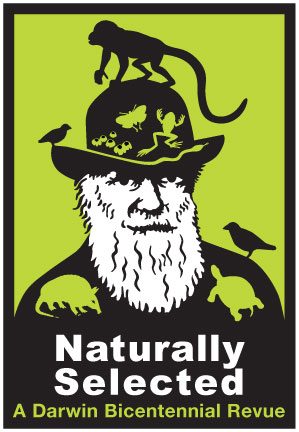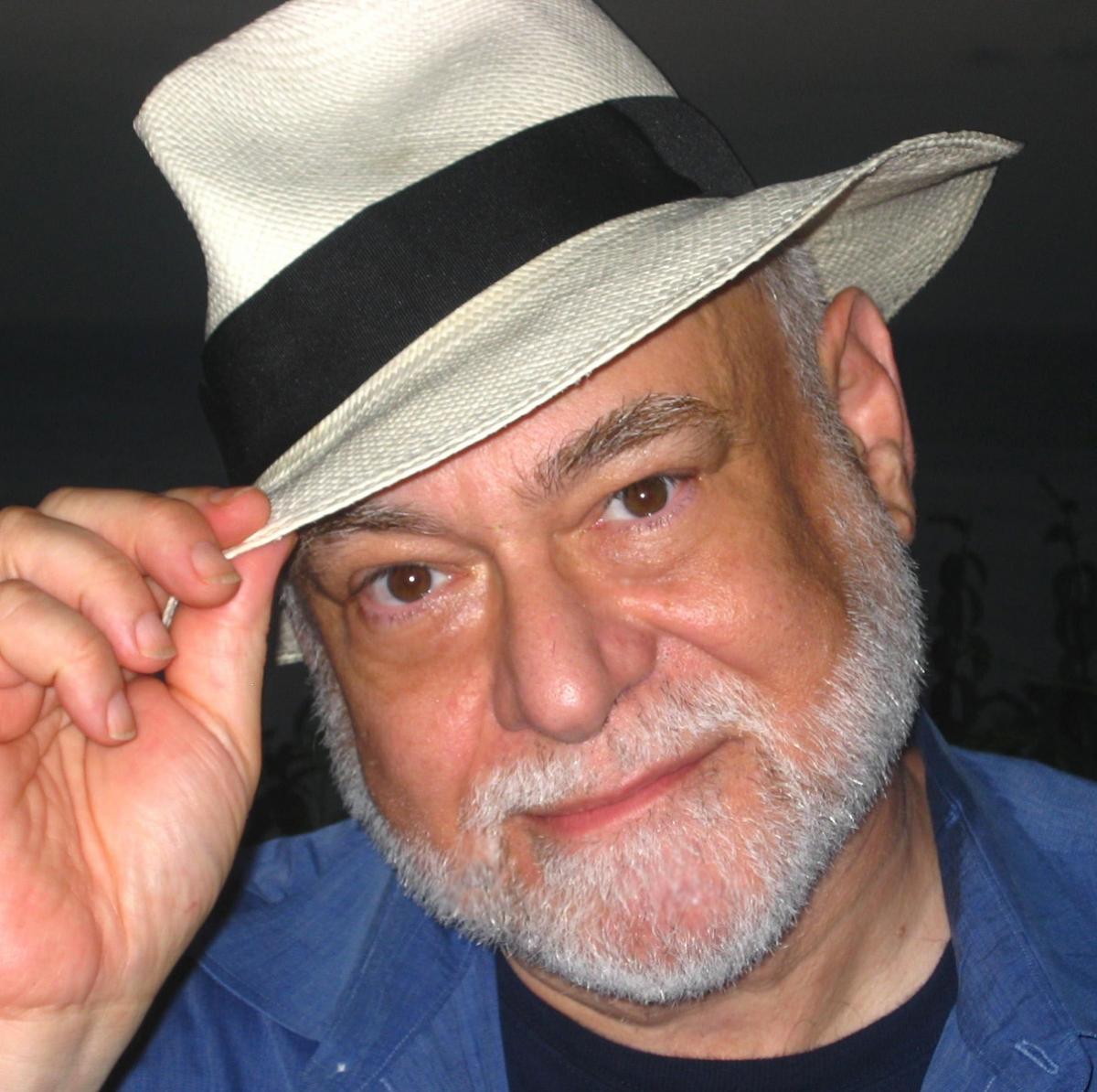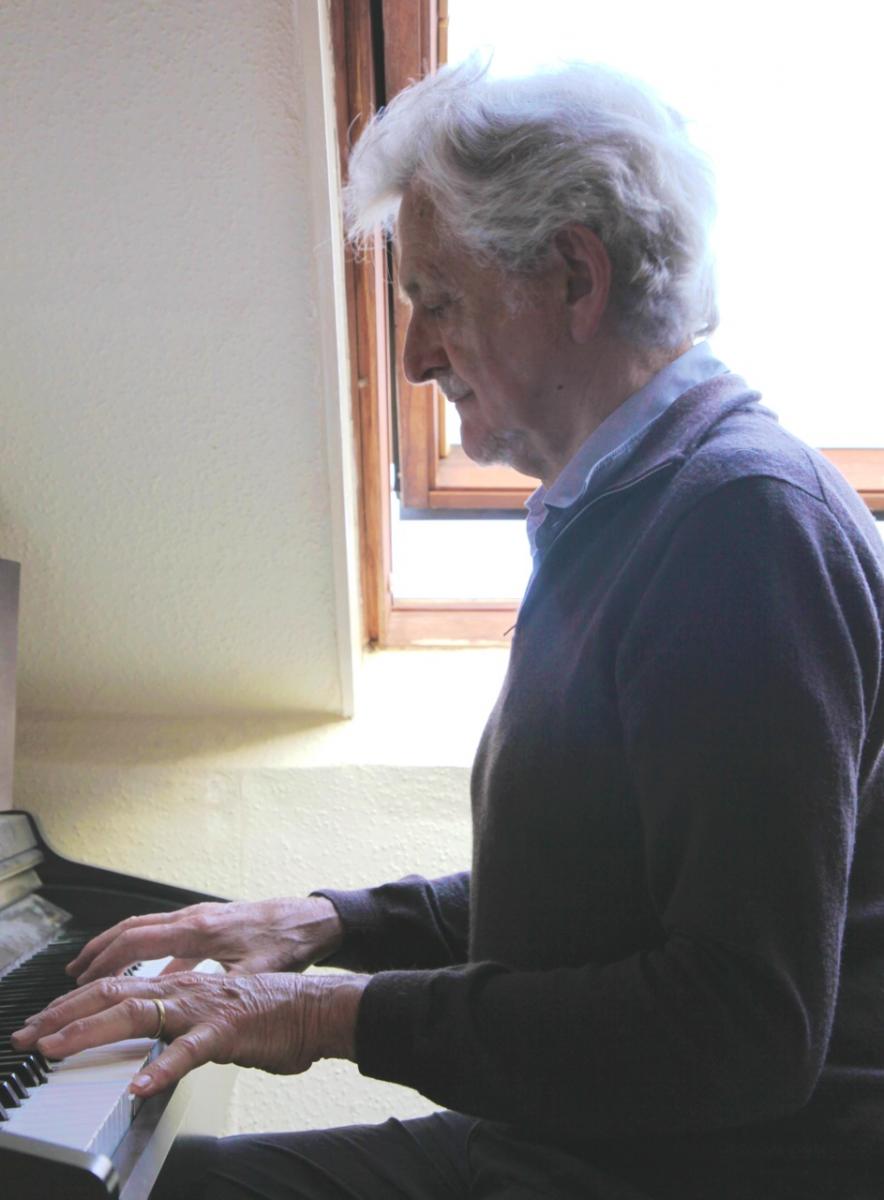2009 Naturally Selected

Celebrating the two hundreth anniversay of Charles Darwin's birth, this collecton of songs about Darwin and his theory of evolution by composers David Haines, Richard Milner, Graham Treacher and Lauren Mayer was performed by the NCFO Festival Chorus as part of the third annual Cambridge Science Festival, April 25 - May 3, 2009.
The Festival Chorus, under the direction of Lynne Carter, comprised more than 100 adults and children (ages 5 and up) from Cambridge and surrounding communities. The three free performances during the week of the Cambridge Science Festival included:
- Sunday April 26 at 6:30 pm - Cahners Auditorium at the Museum of Science [directions]
- Saturday May 2 at 2:30 pm - Broad Instititute of MIT and Harvard
- Sunday May 2 at 3:00 pm - Andrew Peabody School, Cambridge
A complete set of lyrics from Naturally Selected is available here.
See below for the music from Naturally Selected and the composers who wrote it. To hear each song, click on the title. The sound clips are from our May 3, 2009 performance.
 |
Trained at Bristol University, the Guildhall School of Music and Drama and at the Banff School of Fine Arts in Canada, David Haines has written fifteen music theater works, including The Puzzle Jigs, which was performed by NCFO in 2003 and 2008. He has worked with many thousands of schoolchildren and has a special interest in using music to augment the science curriculum. The NCFO Festival Chorus performed David’s science oratorios Lifetime: Songs of Life and Evolution in 2007 and Powers of Ten in 2008. David lives and teaches in Teignmouth, Devon in southwestern England. |
Naturally Selected: A Darwin Bicentennial Revue features seven songs by David Haines from Lifetime: Songs of Life and Evolution:
- Mr. Darwin, Mr. Wallace, Mr. Matthew – A sea shanty telling of how Darwin's travels led him to his theory of evolution, and how two lesser-known figures independently developed similar theories.
- Mutate! – Evolution can only happen when the ordinarily reliable process of reproduction goes awry.
- Extremophiles (American premiere) – Evolution has allowed life to adapt to the most extraordinary places.
- Lake – An ode to cichlid speciation in the great African lakes.
- Taxonomy – No one knows the number of species of life living on Earth, but we have identified millions, and there could be tens of millions more we haven’t found. We have organized this mass of information into a taxonomic classification system: Kingdom, Phylum, Class, Order, Family, Genus, Species.
- Eras – In addition to organizing life taxonomically, we organize the vast, incomprehensively long history of life on Earth into temporal classifications: eon, era, period, epoch, age, and chron.
- Extinction (American premiere) – Historically, most species have gone extinct without any assistance from humans, but our actions over the last few centuries are having a devastating impact on Earth’s biodiversity.
 |
Richard Milner is a New York-based anthropologist, songwriter, historian of science, and author of several award-winning books on Darwin and evolution. His entertaining and authoritative articles have appeared in Natural History Magazine, Scientific American, and the Journal of the Linnean Society of London, where Darwin’s theory was first given to the world. In 2009, Milner's allaimed book, Darwin’s Universe: Evolution from A to Z, was published by the University of California Press. He is a frequent “talking head” on Nova, Discovery Channel, History Channel, Animal Planet, and BBC-2. He has been profiled in the Wall Street Journal (“a natural selection”), the New York Times (“remarkable”), and the San Francisco Chronicle (“master storyteller...witty songs”). |
Naturally Selected: A Darwin Bicentennial Revue features seven songs by Richard Milner from his one-man show Darwin! Live and in Concert (music by Jacques Semmelman, except as noted):
- Jemmy Button – This song relates an actual event that occurred during Darwin's voyage, and captures the astonishing arrogance and racial stereotypes of that time. In 1830, Captain Robert FitzRoy purchased (or perhaps abducted) Orundellico, a young native from Tierra del Fuego, and renamed him Jemmy Button. Jemmy was brought to England to be educated and Christianized, then returned him in 1831 to similarly enlighten his kin. But Jemmy quickly abandoned his European clothes and habits, and happily reverted to his native culture.
- Why Didn't I Think of That – Thomas Henry Huxley, a contemporary and friend of Darwin, was one of the finest comparative anatomists of his day and was probably better known at the time than Darwin. After the publication of On the Origin of the Species he became known as “Darwin’s bulldog” because of his fierce and outspoken defense of Darwin’s theory of evolution.
- Let Him Be First – After his five-year voyage on HMS Beagle, Darwin returned. Over the next 20 years, he refined his theory of natural selection, but hesitated to publish it until he learned a younger naturalist, Alfred Russel Wallace, had come up with exactly the same theory.
- Darwin's Nightmare – Darwin's book caused considerable public outcry, and he began having frequent recurring nightmares of being found guilty and hanged for blasphemy. (Music by Sir Arthur Sullivan)
- The Book – On June 30, 1860, seven months after publication of On the Origin of the Species, a legendary debate was held at the Oxford University Museum between supporters, led by Thomas Huxley, and skeptics, led by Samuel Wilberforce, the bishop of Oxford. Outside the museum, two raucous crowds gathered in support of each position.
- Stephen Jay Gould – One of the most prominent paleontologists and evolutionary biologists of our time, Stephen Jay Gould was considered one of the most influential advocates for evolutionary theory in the late twentieth century. He was also best friends with Richard Milner when they were growing up in Queens, New York. (Music by Sir Arthur Sullivan)
- I Do What I Love – Darwin taught us a great deal, not only about evolution, but also about the reward that comes from doing what you love.
 |
Graham Treacher is a composer and conductor living in London. |
Naturally Selected: A Darwin Bicentennial Revue features seven songs by Graham Treacher from Darwin's Dream, a multi-media drama with musical interludes (lyrics by Stephen Webster, with additional lyrics by A.J. Liuba and David Bass):
- Song of the Quest (American premiere) – It was Darwin’s insatiable curiosity that led him to his theory, and our curiosity that leads us to study it.
- Song of Planet Earth (American premiere) - We don’t know how life first began, but theories abound. Precursors to life may have been coacervates (tiny droplets of assorted oily organic molecules), organic reactions catalyzed on the surface of self-replicating clays, RNA-based life, or even microbes on meteorites.
- Song of DNA (American premiere) – All the information that defines a living thing is contained within its DNA. The chorus performs a musical double-helix at the end of the song.
- Song of the Sea (American premiere) – Although we eventually came to live on land, all life began in the sea and first evolved from primitive bacteria, to invertebrates, to bony fish.
- Song of the Fossil (American premiere) – Much of what Darwin and other scientists learned came from studies of fossil records. Fossils of ammonites, an extinct group of mollusks, are often used to identify the geologic periods of the rocks and sediments in which they are found.
- Song of the Octopus (world premiere) – Octopus and squid eyes look remarkably like our own, but they evolved completely differently. Our eyes grew from brain tissue, while cephalopod eyes developed from light-sensitive patches on the skin, a classic example of convergent evolution.
- Song of Darwin (world premiere) - Hurrah for Darwin, but look out for nature!
 |
Lauren Mayer is a California-based, award-winning writer and entertainer, who has performed hundreds of custom-written programs. She is a summa cum laude graduate of Yale University, the founder of Curriculum Rocks (producing award-winning children's educational music), the writer of several published musicals, and a five-time recipient of the San Francisco Cabaret Gold Award. She just released her second album of comedy songs, “Return of Psycho Super Mom." Despite these awards and accomplishments, Lauren’s mother still doesn't understand why she didn't go to law school. |
Naturally Selected: A Darwin Bicentennial Revue features three songs by Lauren Mayer from Curriculum Rocks, a collection of curriculum-based songs and musicals for children to perform:
- Undercover Creatures – Camouflage is a classic adaptation by potential prey to protect themselves from predators, and by predators to make themselves less conspicuous to potential prey. Those who blend in best live to pass their characteristics on to the next generation.
- Awesome Fossils – Fossils of bones, teeth, footprints, leaves, shells, eggs, skin or even scat (poop) tell paleontologists volumes about long-dead creatures.
- Come and Go (world premiere) – This lovely a cappella ballad was written by Lauren Mayer specifically for Naturally Selected. Extinction is the other side of the evolutionary coin. More than 99.9% of all species that have ever lived are now extinct.
Sponsored by Alexandria Real Estate Equities, Inc.

»



